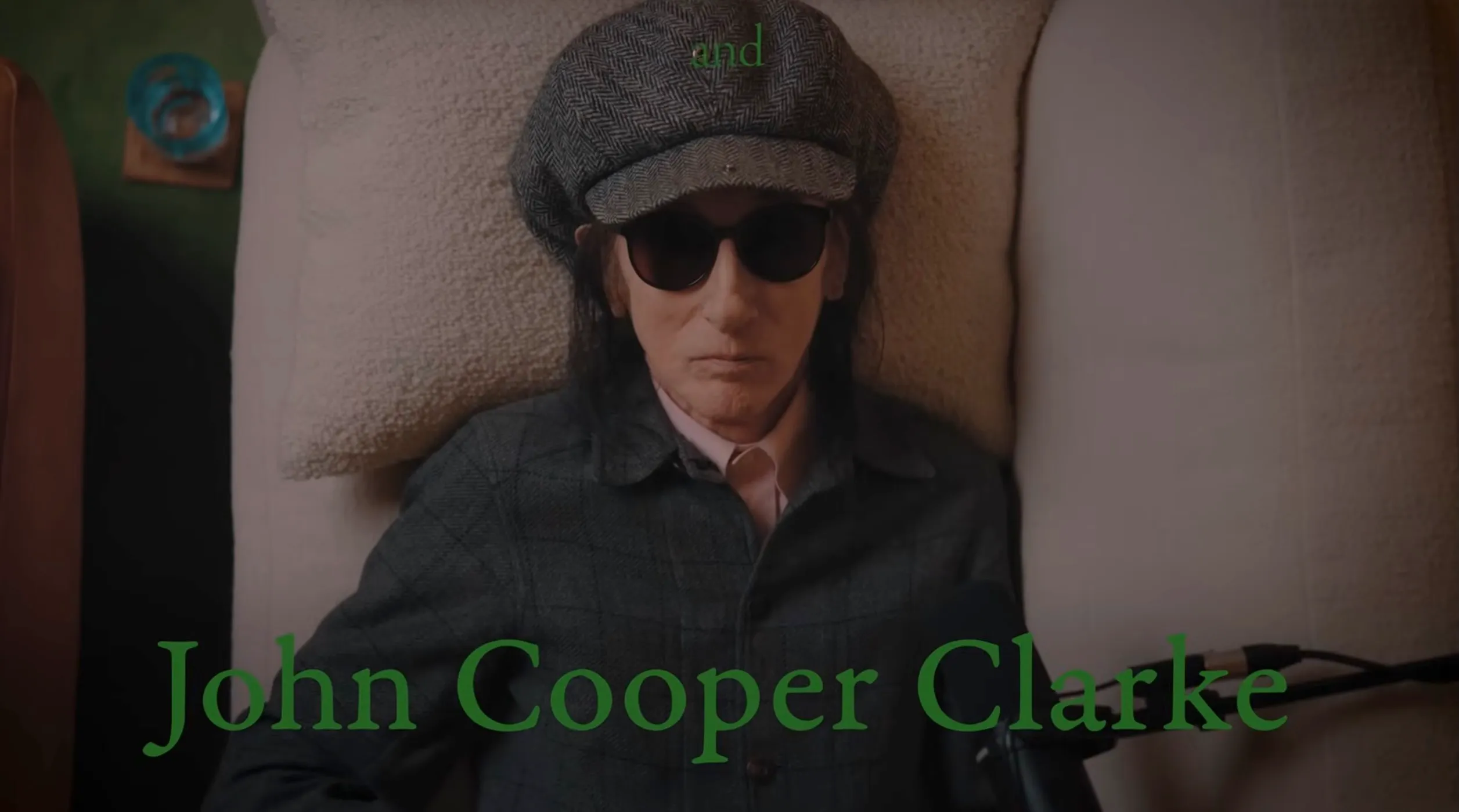
Freud and her sacred Fashion Neurosis couch
Your mother always told you to take off your shoes if you lay on a sofa, a rule that seemed a silly invention to fashion designer Bella Freud. In this fashion-therapist room, where shoes stay on, I found a space for reflection and introspection through others’ lives and Bella’s soothing tone. It’s comparable to visiting your mind healer’s office, but here, you listen to the struggles and perspectives of cultural icons in Fashion Neurosis.
Every episode of this podcast begins with a ticking clock, followed by a few piano notes, the intercom ringing, and Freud welcoming the guest — a deliberate way to set the mood for the next hour of conversation. If you watch it on YouTube, the carefully chosen shots and colour palette envelop your spirit with calmness, making you wish you were lying in what seems to be a sanctuary.
The second season starts with Nick Cave — the witch doctor of Nick Cave and The Bad Seeds — one of my favourite lyricists and, I dare to say, spirit healers. With him, I see my embarkment into Bella’s cushioned couch caravel. Bella disarms every guest with a simple question: “What are you wearing today?“ — the first inquiry. What seems uncomplicated to answer often brings the conversation to deeper levels of deconstructing human behaviour through garments and accessories. We don’t think about these matters daily, but how we dress reveals much about a person. Bella’s way of conducting the conversation opens up cracks in some of my heroes and offers a glimpse of them. For example, one moment of the dialogue with Mr. Cave uncovers why he ran away from me when I bumped into him in Lisbon. It seems he dislikes ankle boots, which are the only type of boots I wear.
I believe talking openly about life episodes tends to help you heal. Putting words out by telling stories of your youth, relationships, addictions, and daily rituals enables you to understand how your brain is wired and why. But with Fashion Neurosis, the exercise is different. We listen to someone exposing themselves, which can be as important as the former. We can discover patterns that define us as humans by listening to these individuals, whom we consider immortal, for the state they manage to achieve in their lives — looking at Cate Blanchett, an invitee to Bella’s therapeutic session and the only one who follows a “No shoes on the sofa“ policy, we can find Blanchett also has days where she struggles to pick her clothes for the day. We all had days like that, didn’t we? And from clothes, we bounce to mother-daughter relationships. It’s like two friends having tea and opening up about their mothers; Bella asks Blanchett if she received praise from her mom for being a beautiful young girl. Cate seems to be searching for those memories, and Bella jumps into the picture, sharing a personal story with the patient. The questioning is inverted and boomerangs back to Bella, who confesses her mother probably didn’t receive any praise in her prime years, which didn’t teach her how to demonstrate that. Even though Bella felt loved, she also felt ashamed for being excited about being herself. One day, after learning a Moroccan dance, a six-year-old Bella wanted to show it to her mother, practising it before opening the door to the room where mom was… but that never happened, as there wasn’t enough encouragement to follow through.
In every episode I’ve seen, the conversations flow beautifully. They show how situations we have lived scar us, and those scars are essential to telling our story.
Bobby Gillespie, from Primal Scream, tells us about his addiction to heavy drugs and how he beat it, how Nick Cave and Warren Ellis inspired him to leave that destruction trail behind.
The British punk poet John Cooper Clarke discusses how MAD Magazine influenced him and humorously critiques the Yippie movement, saying: “They left us vegetarianism and the drug culture“.
Susie Cave, wife of Nick Cave and Bella Freud’s best friend, opens up about her modelling days, how shyness affected her, and her discomfort with the spotlight. She also speaks about her work routine behind her now-closed fashion label, The Vampire’s Wife.
Hanif Kureishi, the writer of My Beautiful Laundrette and the novel The Buddha of Suburbia — I discovered that David Bowie wrote the album for the TV series’ book adaptation — had an accident in Rome that left him tetraplegic. I didn’t know him, but watching his episode with Bella touched me so much that I began reading his blog. His near-death experience catapulted his wish to live.
The fashion doctor discusses a wide range of topics in this office. Bella Freud managed to create a stunning piece of art for a person who never listens to podcasts for finding them tedious. There’s a new episode every week, and Marina Abramović lies on the couch in this week’s episode. It’s on my list of things to do. I recommend taking an hour off in your week and doing the same.
Warmly,
Miguel